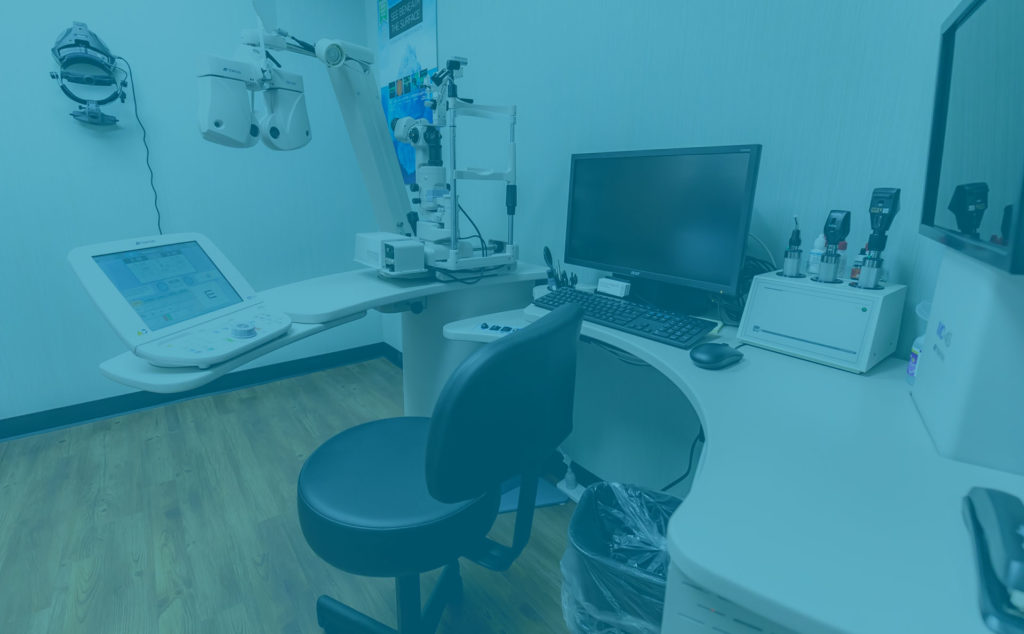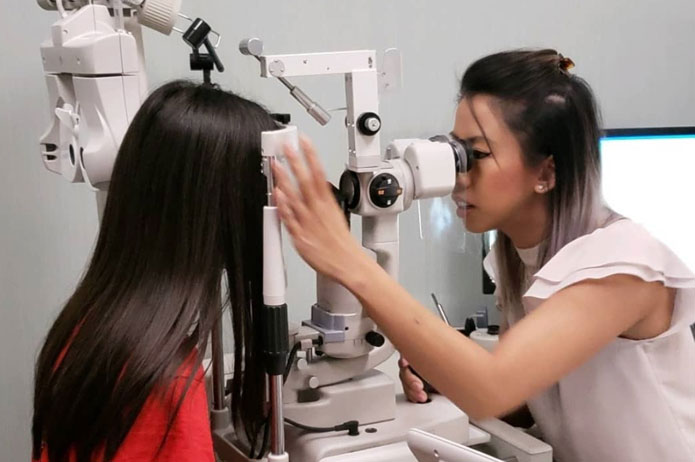Comprehensive Eye Exams
Booth Eye
Eye Exams
Let us give you a walk-through of what to expect during your eye exam. The comprehensive eye exam includes glaucoma screening, visual field screening, retinal photos/scans, eye health check, and lastly eyeglass prescription check.
Glaucoma Screening – We check your eye pressures using the latest handheld device, the iCare digital tonometer. This means no more local eye anesthetic and air puffs! High ocular pressures can be a risk factor for glaucoma, so screening annually is very important, especially for those with a family history of glaucoma.
Visual Field Screening: We are also equipped with the Zeiss Humphrey FDT (frequency doubling technology). This test evaluates your peripheral vision to screen for glaucoma, and show any signs of peripheral or central vision loss. It will map out any vision loss within 30 degrees of your peripheral sight. This test is especially important if you have high intraocular pressure, headaches, flashes or floaters, medications that may affect the eyes, or personal/family history of glaucoma.
Digital Retinal Imaging – We use the OptoVue iFusion device to take a photo and also a digital scan of the retinal layers inside your eyes (think of seeing the layers of a birthday cake without having to cut the cake). This will allow you and the doctor to see retinal diseases likes macular degeneration, glaucoma, and diabetic retinopathy. With a comprehensive eye exam, the doctor requires that every patient does this as a baseline, even if your eyes are presumed healthy. A retinal exam is then recommended at least once every following year, and mandatory every year for patients who have diabetes.
Eye Health Check: We will use a slit lamp to examine the front of your eyes and also check for diseases like cataracts inside your eye. When your pupils are too small to look into eye, we may suggest dilation for better evaluation.
Dilation – This is recommended for patients who have a history of diabetes, high blood pressure, autoimmune disease, cancer or are highly nearsighted. Dilation will typically be scheduled as a separate follow-up visit for patients who need an annual diabetic eye exam (a report will be written for your primary care doctor/endocrinologist).
Eyeglass Prescription Check: Whether you need glasses for distance vision, reading/computer, prescription sunglasses or eye strain, be sure to tell Dr. Hoang what your visual needs are before the exam. Once we understand what your vision needs are, we can help get you glasses that are made specifically for you.
A lot of patients now work on the computer and laptop. We realize that the technique of getting you computer glasses is not a “one size fits all” type of fitting. It is important that we know how many monitors you work with, how far your monitors are from your eyes (working distance) and also if you require the use of paper/pen at the desk. Once we gather that information, we can recommend the best type of rx for you.
Call (714) 838-3210 for an appointment!
our patients
what people say
“Dr. Hoang and her team made my routine eye exam very insightful and informative. I couldn’t be happier with my new contacts & glasses!”
“Dr Hoang was great. Gave me a lot of info and really was patient and took the time to make sure I understood everything. A great experience. I really felt like everyone on staff cared. Thank you”
“Very pleased with Dr. Hoang and the staff, are friendly and efficient. Make an appointment, you won’t be disappointed!”


